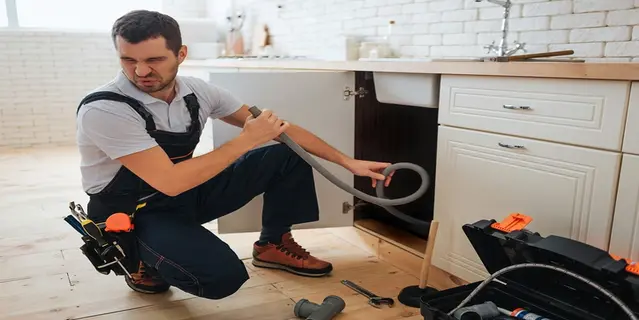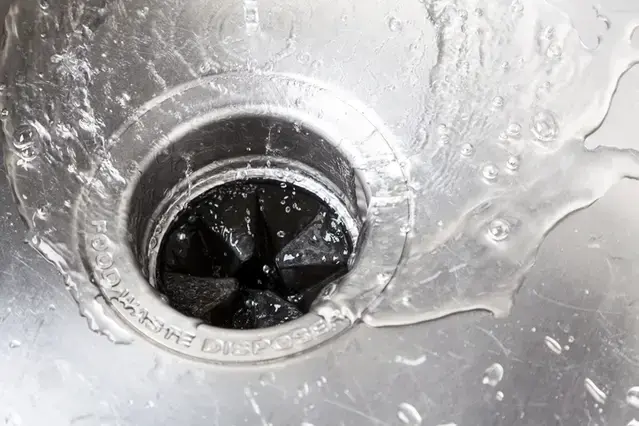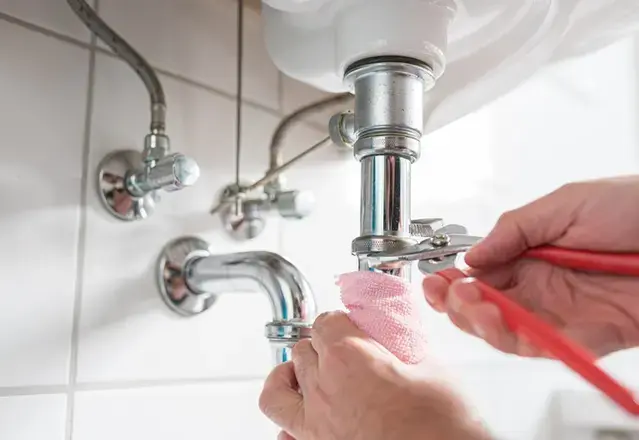
Is It Your Plumbing? 8 Reasons for Mystery Odors at Home
There’s only so much air freshener and ignorance we can give to the unpleasant smells that seem to come out of nowhere. Rather than hoping the problem goes away on its own or trying to drown it with spray, check out these common causes of smells that are related to your plumbing.
Garbage Disposal
One of our best friends in the kitchen is the garbage disposal. So convenient that once you experience life with one, you likely won’t want to deal without it again. But if you come up to the sink and feel like you’ve been smacked with stink, there might be something trapped in the disposal. This not only smells bad and keeps you away from the kitchen, but it also attracts pests to your plumbing, which will create more problems. Be sure to take time every so often to properly clean out the disposal and try using ice cubes or store-bought refreshers to keep things under control in between cleanings.

Dirty Dishwasher
Even though its job is to clean things, a dishwasher can easily become a breeding ground for mold, mildew, and rotting food. Take some time to routinely wipe down the dishwasher, and for extra good measure, run a cycle and hot rinse with only a small bowl of white vinegar at the bottom of the empty dishwasher rack.
Hidden Mold
If you notice water dripping or black spots in the shower that indicate mold growth, address it immediately. Water leaking behind the scenes not only damages structures but also causes mildew odors and can easily lead to infestations. On a damp surface with the right nutrients, mold colonies begin to grow within 24 to 48 hours. And their spores, or seeds, spread throughout the home via the air and hitch rides on things, continuing to find new locations to grow until completely eliminated. And unfortunately, this goes beyond damage to a property – mold can cause health issues and discomfort in both humans and pets. It’s not something you want to ignore.
Empty P-Trap
If a drain line empties from your home into the sewer system, there will be a U- or P-shaped pipe at the base of the drain to catch any debris that accidentally goes down, and seal out odors from creeping back up. You can often shine a light down into the sink to see if there is water within. If there is no water down there, that means the trap is empty. This is usually due to evaporation or an underlying leak – both of which should be repaired quickly.

Water Heater Problems
You might notice that your water smells like rotten eggs. An easy test is to run only cold water – if there is no smell of cold water, the problem is likely with the water heater. Depending on how long this has been going on and how old the heater is, finding a replacement water heater might be more cost-effective in the long run. But there are options for flushing and cleaning the tank in effort to eliminate these smells. We are happy to perform an inspection and help you make the best decision for your home.
Natural Gas Leak
While natural gas alone does not have a smell, gas companies add that obnoxious sulfur odor purposefully to indicate a major problem. Therefore, if you’ve ruled out rotten food and suspect a gas leak, get everyone out of the house and call the authorities. Do not use any appliances or even a landline phone if you have one – just vacate and seek professional assistance for your safety.
Pipe Clogs
Never ignore the signs of plumbing issues. Blockages within pipes can take a minor issue and turn it into a disaster very quickly. Depending on the type of clog and severity, it could turn into a sewage backup, which is both costly to recover from and hazardous to your family’s health.
Outdoor Sources
What you think is an odor lingering somewhere within your house might actually be something permeating from the outdoors. If you’re searching everywhere for a source of the problem and can’t seem to find it, take a step outside. One solution to this is to ensure that your HVAC filters are fresh and clean. You can also run air purifiers, add weatherstripping, and increase your home’s insulation to keep smells at bay.
Our team is always here to help – don’t hesitate to reach out.

